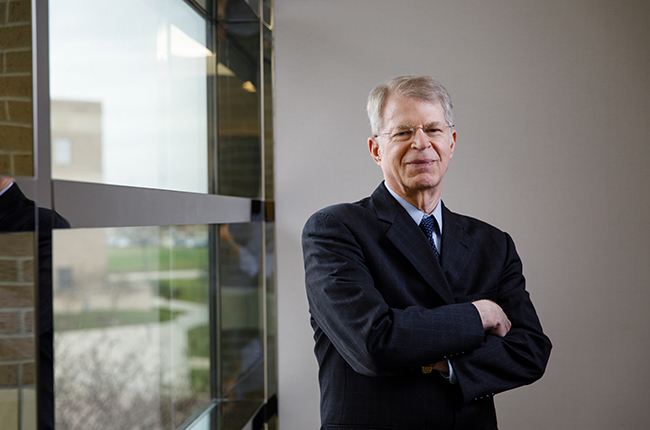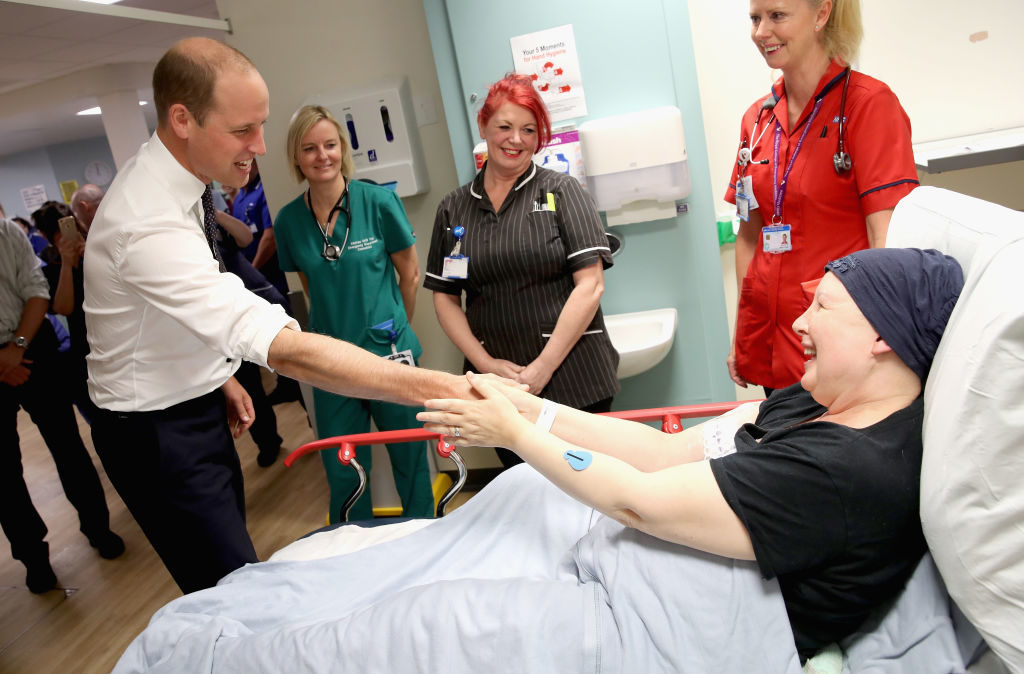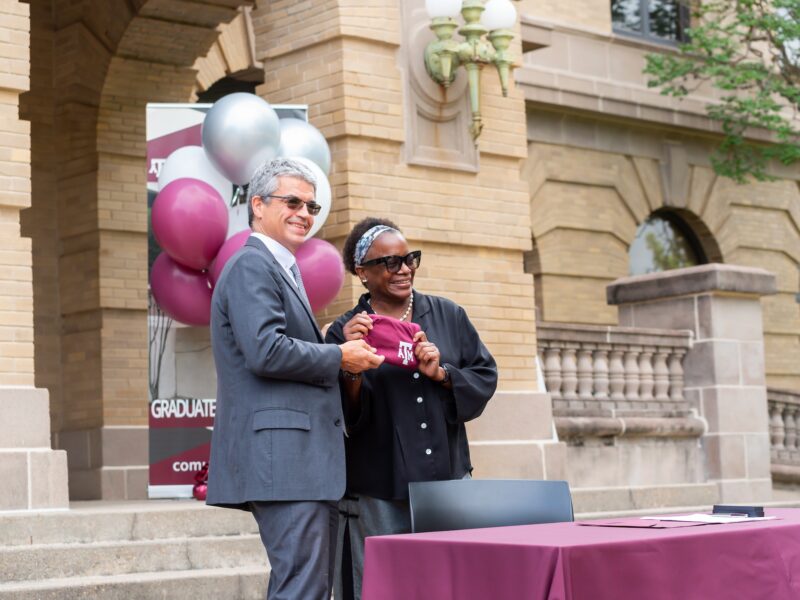
World Cancer Day 2018 – observed on Sunday, Feb. 4 – is a global campaign that aims to save millions of preventable deaths each year by raising awareness and education about the disease. The objective is to get as many people as possible to talk about cancer, including on social media with the hashtag #WorldCancerDay, pressing governments and individuals across the world to take action in the fight against cancer.
“Cancer not only impacts the patient but also the family, and it is especially appropriate to take a holistic approach to cancer care in discussions on World Cancer Day,” says Leonard L. Berry, a Texas A&M University healthcare expert from Mays Business School. Berry advocates for practical improvements in cancer care services for both the patient and the family based on his ongoing study of how to improve the service journey that cancer patients and their families take from diagnosis through treatment, recovery and in some cases end-of-life care.
Drawing on Berry’s research conducted at 10 innovative cancer centers, he and his co-authors provide important guidelines for designing cancer care services that prevent avoidable suffering and improve the care experience. These guidelines focus on integrating humanity into a service that requires sensitivity and compassion.

Design cancer care services to be less stressful
Cancer care is a high-emotion service. The need for the service alone elicits intense emotions. The wonders of high-tech cancer care are best complemented by high-touch care. Guidelines for helping healthcare organizations deliver services to better anticipate and respond to patients’ and family’s emotional needs were developed based on interviews with more than 350 cancer patients, family members, oncologists, surgeons, oncology nurses, non-clinical staffers, and leaders of healthcare organizations:
- Identify emotional triggers such as the need for cancer care services
- Respond early to intense emotions, including preparing patients for what’s next
- Enhance the patients’ control
- Hire the right people and prepare them for the role
The complete guidelines are available in the Harvard Business Review.
Manage the clues in cancer care
Patients’ experiences, good and bad, accumulate as a result of clues embedded in these experiences. Clues are the signals patients perceive in using a service. When interacting with a system of care, patients filter clues, organizing them into a set of impressions. Patients may perceive clues rationally or emotionally, and clues may be defined by their presence or absence.
Optimizing cancer patients’ service experiences requires sensitive management of the clues that comprise the overall service. Well-managed clues can evoke positive feelings, such as trust and hope. Poorly managed clues can exacerbate negative emotions, such as anxiety, stress, helplessness, anger, and fear.
Cancer centers can improve their services by implementing a framework that manages certain clues that act as stimuli to patients, eliciting either positive or negative emotions. These clues involve the perceived technical quality of the service, tangible aspects of the facility itself and the ability of the employees to interact effectively with the patients, respectively. Managing these clues well can make a frightening and emotional service experience much more positive in the eyes of the patient. This framework is detailed in the Journal of Oncology Practice.

Incorporate kindness in cancer care
Simple kindnesses can help diffuse negative emotions that are associated with cancer diagnosis and treatment. Six types of kindness may prevent avoidable suffering:
- Deep listening, whereby clinicians take the time to truly understand the needs and concerns of patients and their families
- Empathy for the patient with cancer, expressed by both individual clinicians and the care culture
- Generous acts of discretionary effort that go beyond what patients and families expect from a care team
- Timely care that is delivered by using a variety of tools and systems that reduce stress and anxiety
- Gentle honesty, whereby the truth is conveyed directly in well-chosen words
- Support for family caregivers, whose physical and mental well-being are vital components of the care their loved ones receive
These mutually reinforcing manifestations of kindness — exhibited by self-aware clinicians who understand that how care is delivered matters — constitute a powerful and practical way to temper the emotional turmoil of cancer for patients, their families, and clinicians themselves. The role of kindness is detailed in the Journal of Oncology Practice.
Support family caregivers of loved ones
Family caregivers require support so that they can be effective and maintain their own well-being while caring for a loved one with cancer. A four-part framework for supporting family caregivers includes:
- Assess caregivers’ needs using formal measures, just as the cancer patient’s own needs are assessed
- Educate caregivers for their caregiving roles, most notably, with training in the low-level medical support that cancer patients require at home
- Empower caregivers to become full-fledged members of the patient’s cancer team, all working toward common goals
- Assist caregivers proactively in their duties, so that they retain a sense of control and self-efficacy rather than having to react to imminent medical crises without sufficient resources at their disposal.
Funding support for family caregivers requires refocusing on the overall well-being of the patient-caregiver team rather than just on the patient, necessitating a paradigm shift in reimbursement that recognizes the need for holistic cancer care. This framework is detailed in the Journal of Oncology Practice.
“A cancer diagnosis may not be life-ending, but it is life changing,” says Berry. “The foundation of excellent cancer care is and always will be the quality of the diagnosis, the treatment plan, and the clinical services. But compassionate, sensitive service matters a great deal in easing the difficult path cancer patients and their families travel.”
Dr. Berry is available for interviews Jan. 26, 30, 31, and Feb. 1.
###
About Leonard L. Berry
Leonard L. Berry, Ph.D., is a University Distinguished Professor of Marketing, Regents Professor, and holds the M.B. Zale Chair in Retailing and Marketing Leadership in the Mays Business School at Texas A&M University. He also is a Presidential Professor for Teaching Excellence at Texas A&M and a Senior Fellow at the Institute for Healthcare Improvement in Cambridge, MA. As a Visiting Scientist at Mayo Clinic in 2001-2002, he conducted an in-depth research study of healthcare service, the basis for his book, Management Lessons from Mayo Clinic (2008). He has written 10 books, including Discovering the Soul of Service; On Great Service; Marketing Services: Competing Through Quality; and Delivering Quality Service. He will receive the American Marketing Association’s “Marketing for a Better World” award in February 2018 and the “Sheth Gold Medal” in August 2018, two of academic marketing’s most prestigious awards.
About Mays Business School
At Mays Business School, we step up to advance the world’s prosperity. Our mission is to be a vibrant learning organization that creates impactful knowledge and develops transformational leaders. Mays Business School educates more than 6,400 undergraduate, master’s and doctoral students in accounting, finance, management, management information systems, marketing and supply chain management. Mays consistently ranks among the top public business schools in the country for its programs and for faculty research.
###
Media contact: Kelli Reynolds, Communications Specialist, Mays Business School, (979) 845-3167, kreynolds@mays.tamu.edu.





